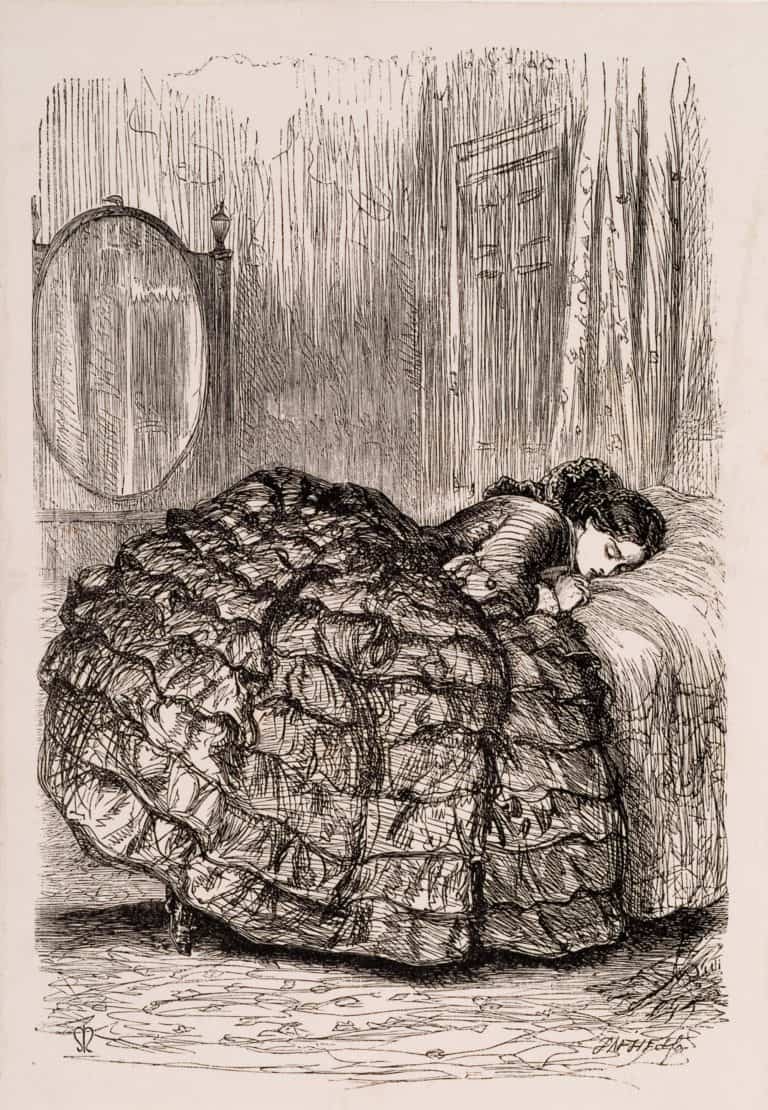Understanding Compulsive Speech OCD

Compulsive speech, also known as pressured speech or logorrhea, refers to a condition where individuals feel compelled to speak rapidly, excessively, and often impulsively.
This speech pattern can be characterized by a rapid flow of words, jumping from topic to topic, and difficulty in controlling the volume or pace of speech.
It is often associated with certain mental health conditions such as bipolar disorder, mania, schizophrenia, or attention deficit hyperactivity disorder (ADHD).
The term “compulsive speech” originates from the field of psychology and psychiatry, where it is used to describe the phenomenon of uncontrollable verbal output.
If you’ve ever wondered what OCD would say if it could talk, you’re not alone. My ebook, Listen Up: OCD is Talking, takes you inside the mind of OCD to reveal its tactics and how to overcome them.
Defining Compulsive Speech OCD
Compulsive speech Obsessive-Compulsive Disorder (OCD) refers to a specific manifestation of obsessive-compulsive disorder where individuals experience a compelling urge to speak or vocalize certain words, phrases, or sounds repeatedly and involuntarily.
Unlike typical compulsions associated with OCD, such as repetitive behaviors or rituals, compulsive speech in OCD involves verbal manifestations that individuals feel driven to express. These verbalizations may range from specific words or phrases to repetitive sounds or noises.
The compulsion to speak arises from intrusive thoughts or obsessive thoughts, compelling the individual to vocalize in an attempt to alleviate anxiety or distress associated with these thoughts.
This form of OCD highlights the diverse ways in which obsessive-compulsive disorder can manifest and underscores the intricate interplay between thoughts, behaviors, and the urge to verbalize in affected individuals.
What it’s Like to Experience Compulsive Speech
Experiencing compulsive speech OCD can be emotionally taxing, often taking a significant toll on individuals’ mental well-being. The relentless urge to vocalize certain words, phrases, or sounds can evoke feelings of frustration, shame, and embarrassment.
Individuals may find themselves trapped in a cycle of compulsive speech, feeling powerless to control the incessant verbalizations driven by obsessive fears and unwanted thoughts.
The constant need to speak or vocalize can lead to heightened anxiety and distress, exacerbating the symptoms of Obsessive Compulsive Disorder OCD. Individuals may feel a sense of shame or embarrassment about their inability to control their speech patterns, which can further perpetuate feelings of inadequacy and self-doubt.
Overall, the experience of compulsive speech OCD is characterized by a complex interplay of emotions, including anxiety, shame, and frustration, which can significantly impact individuals’ quality of life and interpersonal interactions.
Triggers and Patterns in Compulsive Speech OCD

Common Triggers
Certain triggers or situations can exacerbate compulsive speech OCD, intensifying the urge to vocalize repetitive words or phrases.
Stressful life events, heightened anxiety, or feelings of uncertainty often act as triggers, amplifying the need to engage in compulsive verbalizations hoping anxiety decreases.
Additionally, environmental stimuli such as specific sounds, sights, or interactions may evoke intrusive thoughts, prompting individuals to respond with compulsive speech.
Patterns and Rituals
To cope with their compulsions, individuals with compulsive speech OCD may develop patterns and rituals surrounding their verbalizations.
These rituals serve as temporary relief from the distress caused by intrusive thoughts, providing a sense of control in moments of overwhelming anxiety.
For example, some individuals may engage in specific vocalizations in response to particular triggers, while others may establish elaborate routines or sequences of verbal expressions to alleviate their discomfort.
Illustrative Examples
Consider the case of Sarah, who experiences compulsive speech OCD triggered by social interactions. In crowded settings or during conversations with unfamiliar people, Sarah feels an intense urge to repeat certain words silently in her mind before vocalizing them aloud.
This pattern of mental rehearsal and subsequent verbalization serves as a ritualistic response to her anxiety, offering temporary relief from the discomfort of intrusive thoughts.
Similarly, John, who struggles with compulsive speech OCD exacerbated by stress, has developed a ritual of reciting a predetermined sequence of phrases whenever he encounters challenging situations at work.
By adhering to this ritual, John attempts to regain a sense of control over his thoughts and emotions, albeit temporarily, amidst the chaos of his internal struggles.
These examples illustrate how common triggers and patterns manifest in compulsive speech OCD, highlighting the intricate dynamics between environmental stimuli, ritualistic behaviors, and the underlying psychological distress experienced by individuals grappling with this condition.
Coping Strategies for Compulsive Speech OCD

Living with compulsive speech OCD can be challenging, but there are several coping strategies individuals can employ to manage their symptoms and improve their quality of life.
Cognitive Behavioral Therapy (CBT)
Cognitive behavior therapy is a widely recognized therapeutic approach used to treat OCD, anxiety disorders and other mental health disorders, including compulsive speech.
Through CBT, individuals learn to identify and challenge irrational thoughts and beliefs that contribute to their compulsions.
Therapists help clients develop healthier coping mechanisms and strategies to resist the urge to engage in compulsive speech.
Exposure and Response Prevention (ERP)
ERP is another effective treatment for OCD that involves gradually exposing individuals to their triggers while refraining from engaging in compulsive behaviors.
Over time, this desensitizes individuals to their triggers and reduces the intensity of their compulsions such as mental acts.
In the context of compulsive speech OCD, ERP may involve gradually exposing oneself to triggering situations while resisting the urge to vocalize repetitive words or phrases. ERP is recommended to be used with guidance of a mental health professional.
Mindfulness and Relaxation Techniques
Practices such as mindfulness meditation, deep breathing exercises, and progressive muscle relaxation can help individuals manage anxiety and stress associated with compulsive speech OCD and other mental illnesses.
By cultivating present-moment awareness and relaxation, individuals can reduce the frequency and intensity of their verbal compulsions.
Medication
In some cases, medication may be prescribed to alleviate symptoms of OCD, including compulsive speech.
Selective serotonin reuptake inhibitors (SSRIs) and other antidepressants are commonly used to manage OCD symptoms by modulating neurotransmitter levels in the brain.
It’s important to consult a psychiatrist or healthcare provider to determine the most appropriate medication regimen based on individual needs and circumstances.
Support Groups and Peer Counseling
Connecting with others who have experienced similar challenges with compulsive speech OCD can provide validation, encouragement, and practical coping strategies.
Support groups, online forums, or peer counseling programs offer opportunities for individuals to share their experiences (such as childhood trauma or pediatric autoimmune neuropsychiatric disorders) learn from others, and receive emotional support from peers who understand their struggles.
Lifestyle Modifications
Engaging in regular exercise, maintaining a balanced diet, getting adequate sleep, and reducing alcohol and caffeine consumption can support overall mental health and help alleviate obsessive compulsive symptoms , including compulsive speech.
Self-Compassion and Acceptance
It’s important for individuals with compulsive speech OCD to practice self-compassion and acceptance.
Accepting oneself with compassion, acknowledging the challenges of living with OCD, and reframing negative self-talk can foster resilience and empower individuals to manage their moderate symptoms more effectively.
Seeking Professional Help
Finally, seeking professional help from a licensed therapist or psychologist who specializes in OCD treatment can provide personalized guidance, support, and evidence-based interventions to address compulsive speech and improve overall well-being.
By incorporating these coping strategies into their daily lives, individuals with compulsive speech OCD can develop effective ways to manage their symptoms, reduce distress, and enhance their quality of life.
It’s essential to approach treatment holistically, considering the unique needs and preferences of each individual, and to seek support from qualified mental health professionals when needed.
If you found this article helpful, imagine what an entire guide to OCD could do for you. Check out my ebook, Listen Up: OCD is Talking, and take charge of your journey today.





